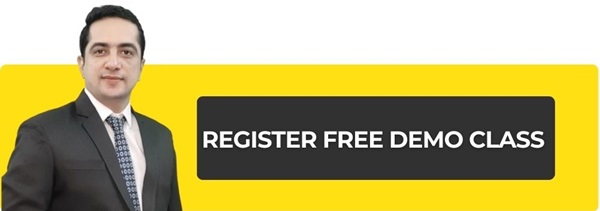In the previous chapter, we have seen how a company gradually progresses from the idea level to the IPO. Through a story, we saw the growth of the company. How does the company need money at different levels and what are the ways to raise money. What are the conditions the company has to deal with before bringing an IPO?
It is important to know and understand all this because in the IPO market or primary market, many times such companies also come who have never raised money from anywhere else before. Before IPO, good VC, PE fund or some other big investors get more information about promoter and business of companies that have raised money, so they can be trusted a little more.
Why do companies raise money from the public? (Why do companies go public?)
We raised some important questions in the previous chapter. One of them was why companies go public to raise money, why choose IPO route?
Whenever a company decides to go for an IPO, it usually wants to raise capex to increase the business. In this way the company has three advantages:
- The company gets money for CAPEX.
- The company avoids taking debt, saving interest on the loan saves more money with the company in the form of profits.
- When you buy shares of the company, like the promoter of the company, you also become a shareholder in the risk. However, the risk depends on how many shares you hold. But the promoter definitely manages to distribute his risk among many people.
Apart from this, there are some other advantages of raising capital through IPO:
The initial investors of the company get a chance to withdraw their investment: When the company is listed after the IPO, then anyone can buy and sell its shares. This gives a way for many people like promoters, angel investors, venture capitalists, PE funds, etc. to sell their shares. In this way they are able to withdraw their initial investment.
Rewards to the Employees of the Company
Some shares may be allotted to the employees already working in the company. In this way, when the company gives shares to its employees, then this agreement is called Employee Stock Option. These shares are given to the employees at a discount. When the shares of the company are listed after the IPO, the employees benefit from the increase in the share price. Employees of companies like Google, Infosys, Twitter and Facebook have benefited from such stock options.
Company Name Increases
After public listing, the name of the company gets bigger because its shares are owned by the public, and people can buy and sell them, and people start knowing more about that company.
So now let’s go back to the story of the previous chapter and take it forward. You would recall that the company needed 200 crores for CAPEX and the management had decided to raise this amount through its own sources and IPO.
Remember that the company still holds 16% of the authorized capital i.e. 800,000 shares that have not been allotted to anyone. The value of these shares was estimated to be around 64 crores when the PE firm made the investment. The business of the company has been very good since the investment of the PE firm and it can be expected that the price of these shares will increase further. Let’s assume that the value of these 16% shares is now somewhere between 125 to 150 crores. That is, the price of each share between 1562 to 1875 ( 125 crores / 8 lakhs)
So now if the company sells these 16% i.e. 8 lakh shares to the public, then it will get any amount around 125 to 150 crores. It will have to raise the rest from his own sources. Obviously, the company would like to get as much money as possible by selling the shares.
Merchant Banker
After deciding to bring IPO, the company has to do many things so that it can get maximum money. The first and most important of these is the appointment of merchant bankers. A merchant banker is also called a book running lead manager or simply a lead manager. Their job is to help the company in its IPO. like:
- To do due diligence of the company and give due diligence certificate. They also have to see that the company has complied with every rule of law.
- Prepare all listing documents, including the Draft Red Herring Prospectus (DRHP), in collaboration with the Company. We will discuss about this in detail later.
- Underwriting shares. This means that the merchant banker has entered into an agreement to buy all or some of the shares of the IPO from the company and later sell them to the public.
- To help the company in deciding the price band of the shares in the IPO. The price band means the range of the bottom and top price of the stock between which the shares will be sold. In our story example, the price band is 1562/- to 1875/-.
- Helping the company in its roadshow. Roadshow is the promotion and marketing of the company’s IPO. The entire responsibility of marketing lies with the lead manager.
- To appoint other intermediaries like registrar, banker, advertising agency etc. for IPO. After joining the merchant banker, the company starts the work of IPO.
IPO sequence of events
Every step in IPO has to be taken as per SEBI rules. And these steps are taken in this order:
Merchant Banker Appointment. There can be more than one merchant banker in a large public issue.
Submission of application to SEBI along with a registration statement. The registration statement explains what the company does, why it needs to bring an IPO and the financial position of the company.
Getting approval of IPO from SEBI. After receiving the registration statement, SEBI decides whether to approve or not.
DRHP- After getting the initial approval for the issue, the company has to prepare its DRHP i.e. Draft Red Herring Prospectus. It is also shared with the public. The information that is required to be in DRHP is:
- Size of IPO i.e. how big will the IPO be
- How many shares are being issued in total
- Why is the company bringing the issue and what will the money raised from it be used for.
- Full details of the company’s business, business model, expenses etc.
- all financial documents
- Management’s view that how the business of the company is going to be in the coming times.
- All risks related to business
- Complete information about the people associated with the management.
Market the IPO
Issuing advertisements related to the company’s IPO so that people can know about the IPO. This work is also called a roadshow.
Fixing a price band– The company cannot create a price band very different from the market expectation otherwise people will not subscribe to it.
Book Building – After the completion of the roadshow and the price band is fixed, the company has to officially open the subscription of the shares for a few days so that people can invest money in the issue. Suppose the price band is 100 to 120, then book building will come to know at what price people are investing and which price they think is right. Collecting all this information is called book building. This gives an idea of the true price.
Closure – The listing price of the share is fixed after the book building is completed. This price is usually the price at which the maximum number of applications or applications have come.
Listing Day – On this day the shares of the company are listed on the exchange. The listing price is determined on the basis of demand and supply of shares on that day. The stock is then listed at a premium, par or discount from its cut off price.
What Happens After IPO? (What happens after the IPO?)
As long as the IPO or issue is open, investors can bid or bid for the shares at the price of their choice within the price band of the IPO, then it is called the primary market. But as soon as the stock is listed on the exchange, anyone can buy and sell that share, it is called secondary market. After this the buying and selling of shares starts happening daily.
Why do people buy or sell shares? Why does the share price go up and down? We will try to answer each such question in the coming chapter.
Few key IPO jargons
Under Subscription: Suppose a company wants to sell 100,000 shares to the public, but during book building, it is found that bids have been received for only 90,000 shares, then the issue is said to be undersubscribed. This is not considered a good position for the company as it would be considered that the public did not like the issue.
Over Subscription: If 200,000 bids are received for an issue of 100,000 shares, the issue is said to be oversubscribed twice.
Green Shoe Option: Under the underwriting agreement, the issuer has the right to allot additional shares (usually 15%) in case of oversubscription. It is also called overallotment option.
Fixed Price IPO: Sometimes companies bring IPO by fixing the share price instead of the price band. This is called Fixed Price IPO.
Price Band & Cut Off Price: The price band is the range within which the shares are issued. Suppose the price band is 100 to 130 and the share price is fixed at Rs 125 at the close of the issue, then Rs 125 is called the cut off price.
Some Important IPOs in India
What you have learned so far will help you understand this table.
| Issue’s Name | Book Price | Running Lead Manager- BRLM | Date | Size (Lakhs) | Price Band | |
|---|---|---|---|---|---|---|
| 1 | Wonderla holidays | 125 | Edelweiss Financial Services and ICICI Securities Limited | 21/04/2014 to 23/04/2014 | 14500000 | 115 to 125 |
| 2 | Powergrid Corporation | 90 | SBI, Citi,ICICI, Kotak, UBS | 03/12/2013 to 06/12/2013 | 787053309 | 85 to 90 |
| 3 | Just Dial | 530 | City, Morgan Stanley | 20/05/2013 to 22/05/2013 | 17493458 | 470 to 543 |
| 4 | Repco Home | 172 |
SBI, IDFC, JM Financial
|
13/03/2013 to 15/03/2013 | 15720262 | 165 to 172 |
| 5 | Vmart Ltd. | 210 |
Anand Rathi
|
01/02/2013 to 05/02/2013 | 4496000 | 195 to 215 |
Important points of this chapter:
- Companies bring in public issues to raise money, to provide a way for initial investors to withdraw money, to reward employees, and to enhance the company’s reputation.
- Merchant banker is the most important partner of any company for IPO.
- The IPO market is completely under SEBI and it is SEBI that decides whether a company should be allowed to bring an IPO or not.
- Before investing money in IPO, every investor must read DRHP so that they can get complete information about the company.
- More and more IPOs in India take the route of book building.

Gaurav Heera is a leading stock market educator, offering the best stock market courses in Delhi. With expertise in trading, options, and technical analysis, he provides practical, hands-on training to help students master the markets. His real-world strategies and sessions make him the top choice for aspiring traders and investors.





